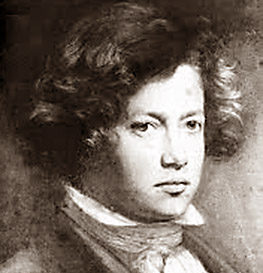by Leslie Gerber
July 8, 2019
Boston Musical Intelligencer
The venerable Aston Magna series, founded in 1972 under the music direction of the late harpsichordist Albert Fuller, took its name from for its original home base, the Great Barrington estate of the great violinist Albert Spalding (1888-1953). For a time, Aston Magna based its activities at Bard College, which gave it pretty good support for its concert series. After relocating its base to Brandeis University, Bard remained one of its concert venues. But the college offered virtually non-existent support, and after several seasons of declining attendance, the series left Bard two years ago.
Last season, Aston Magna tried out several venues for its westernmost concerts. In the unlikely setting of Time and Space Ltd. in Hudson, mostly a small film theater, Last season’s single concert drew an audience almost as large as the previous entire season at Bard. This year, Aston Magna is presenting four of its concerts in Hudson, two at Time and Space, one each at Hudson Hall (a recently renovated 19th century theater) and the Hudson Area Library. For those of us in Woodstock who get lots of classical music but almost nothing from the baroque and earlier periods, Aston Magna dispenses a real treat. And it’s apparently well appreciated, since Friday’s concert drew another large audience.
AM’s current music director, violinist Daniel Stepner, is performing at all but one of this season’s concerts. For the concert of Friday, July 5th, Stepner put together an ad hoc string quartet with violinist Julie Leven, violist Jason Fisher, and cellist Jacques Lee Woods. They were all playing Baroque instruments, which were still in use until the mid-19th century, but since the earliest works were from the early Baroque, they used two different bows. Now, that’s authenticity!

The Sonata XVI by Dario Castello (1602-1631) was an outstanding sample of early baroque music. Purcell’s probably intended his famous Chacony intended for viols, but it worked well with these instruments also. So did Caldara’s pleasant Sonata a Quattro IV. Telemann’s lively and inventive Quartet in A proved to be a typical sample of that underrated composer’s best work. All these pieces were written for, or could be performed by, two violins, viola, and cello, but they were not what we now think of as “string quartets,” multi-movement works in sonata form.
Frantisek Xaver Richter, who has been only a name to me, wrote the first real “string quartet” on the program, his Op. 5, No. 1 in C Major. This music had the hallmarks of the musical form that we think of as having been invented by Haydn. (It was actually written after Haydn’s first string quartets but published earlier.) Did Richter actually invent the modern string quartet? Or did it develop simultaneously? It’s very unlikely that Richter and Haydn both knew the other’s work when they started writing their string quartets. At any rate, Richter was a couple of decades older than Haydn and thus a more experienced and mature composer than Haydn was when he wrote his “Opus 0, which came next (shorn of its two minuettes). The Richter showed better development and, frankly, possessed more interest than the very early Haydn; I plan to become better acquainted with his music. I especially liked the way Richter gave so much work to the second violin.
The early Haydn came first after intermission. The rest of the program included early Mozart—the Quartet in G, K. 156—and one of Haydn’s late masterpieces, the Quartet in G Minor, Op. 74, No. 3. The performers responded with larger, fuller sound than we’d heard in anything earlier. I have no idea how these four musicians managed to create such a cohesive, elegant ensemble in a few weeks of rehearsal time. They did it, though, offering us extremely accomplished playing, varied to suit the individual works in a completely convincing manner. Aston Magna provides the mid-Hudson Valley with unique opportunities to hear music we don’t usually hear, performed with gratifying style and expertise. I can hardly wait for the next concert. A full schedule can be found at www.astonmagna.org.
Leslie Gerber, who lives in Woodstock, New York, has been reviewing professionally since 1966, for such venues as Performance Today, Fanfare, and Amazon.com. He also publishes the Parnassus Records label.

